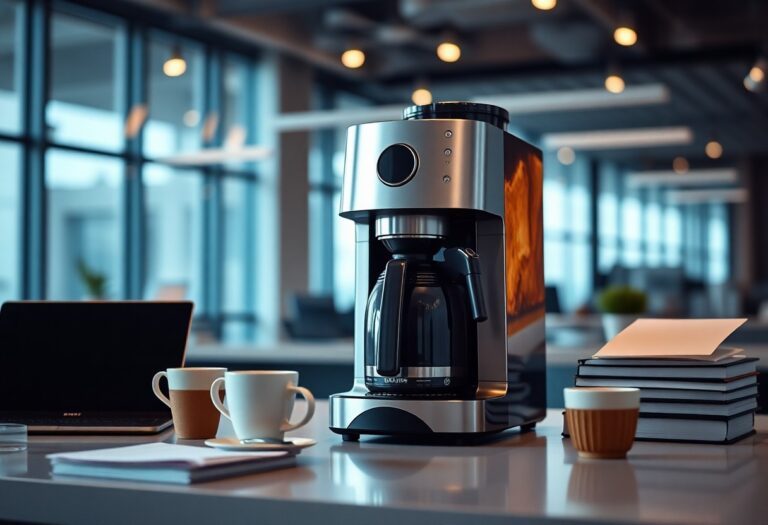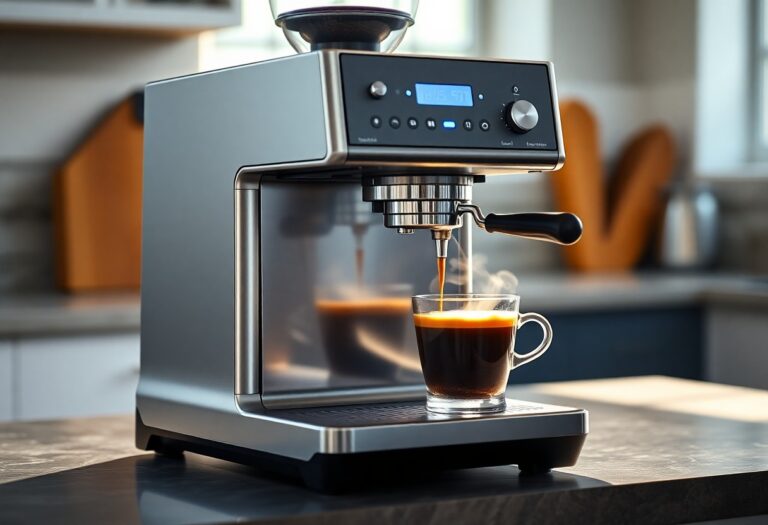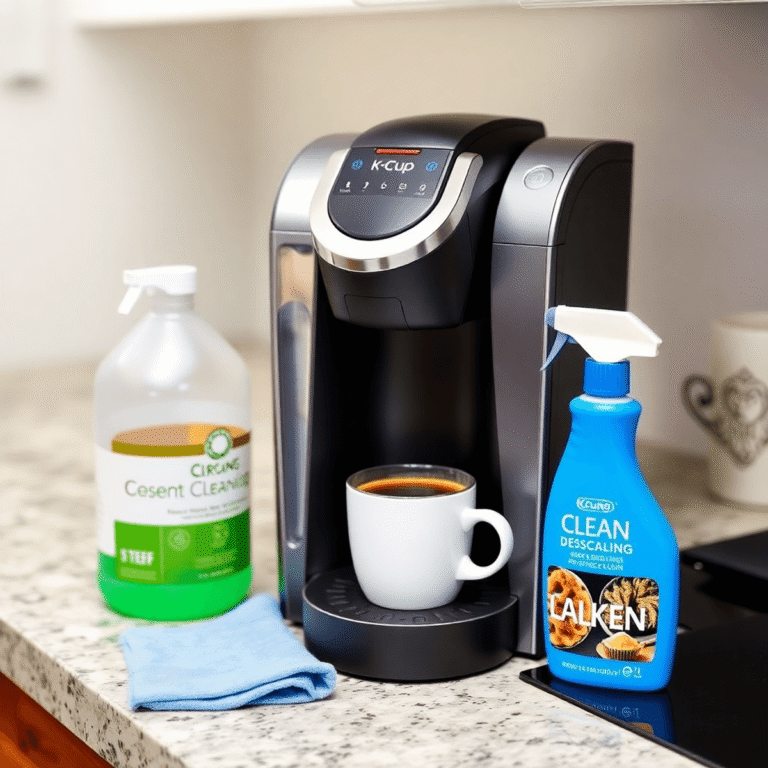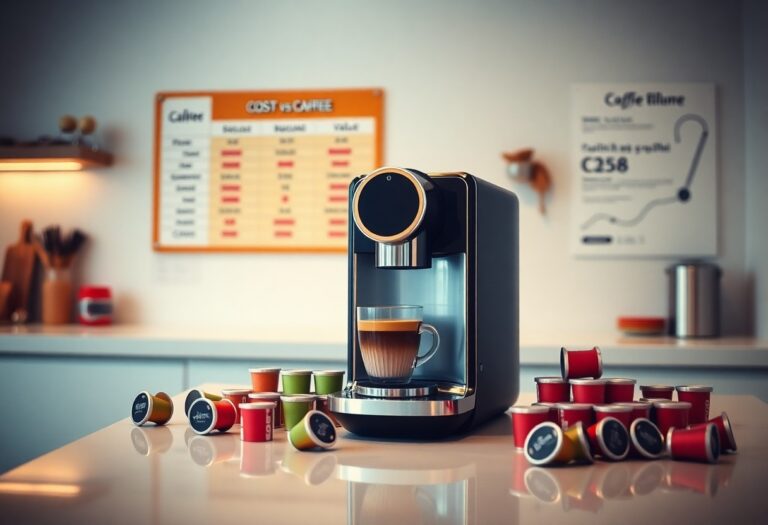What Coffee to Use in a De’Longhi Coffee Machine – Bean Guide
There’s a world of coffee beans just waiting to elevate your De’Longhi coffee experience. Choosing the right coffee is important for producing a rich, flavorful brew that delights your senses. You’ll want to consider factors like roast level, grind size, and your personal taste preferences. In this guide, you’ll discover the best coffee beans to enhance your De’Longhi machine, leading to that perfect cup you’ve been dreaming of. Get ready to brew with confidence!
Key Takeaways:
- Opt for high-quality, fresh coffee beans to enhance the flavor and aroma of your brew.
- Choose beans that match your personal taste preferences, whether you enjoy lighter or darker roasts.
- Consider the grind size of the beans; a medium grind is typically recommended for De’Longhi machines.
- Single-origin beans can provide unique flavor profiles, while blends may offer a more balanced taste.
- Store your coffee beans in an airtight container to maintain freshness and prevent staling.

Decoding Coffee Bean Varieties for Your De’Longhi
Understanding the different coffee bean varieties can significantly enhance your De’Longhi coffee-making experience. Each type of bean brings its distinct characteristics, influencing everything from flavor profiles to aroma. As you explore these varieties, the taste of your brews will evolve, making it crucial to familiarize yourself with the options that best suit your palate.
Arabica vs. Robusta: The Battle of Flavors
Arabica and Robusta are the two most popular coffee bean varieties, each with unique traits. Arabica beans are known for their smooth, sweet flavors and delicate acidity, making them a top choice for quality coffee lovers. In contrast, Robusta beans are often described as strong and bitter, with a higher caffeine content, which can lead to a more intense cup.
Specialty Beans: Finding the Unique Profiles
Specialty coffee beans offer a wide array of flavors and aromas, catering to those who seek something beyond the ordinary. These high-quality beans are often sourced from specific regions and are produced under stringent conditions, which enhances their unique flavor profiles. Enjoying specialty beans allows you to explore different tastes and discover what resonates with your individual preferences.
Varieties of specialty beans can range from fruity Ethiopian Yirgacheffe to rich, chocolatey Guatemalan offerings. Each region imparts distinct characteristics due to factors like soil, climate, and processing methods. As you research into specialty coffee, consider trying single-origin beans that emphasize their unique regional traits. This exploration can reveal fascinating flavor notes, such as bright citrus or deep berry, transforming your daily coffee ritual into a globally-inspired journey.
Sourcing Premium Coffee Beans
Finding the right coffee beans is crucial for crafting the perfect cup in your De’Longhi machine. Seeking out premium coffee ensures that you experience rich flavors and aromatic profiles. Prioritize beans sourced from reputable regions known for their quality production, such as Ethiopia, Colombia, or Guatemala. Certifications like Fair Trade or Rainforest Alliance can also guide you toward sustainable choices that support ethical farming practices while elevating your morning brew.
Local Roasters vs. Online Shopping: Weighing Options
Choosing between local roasters and online shopping can be a balancing act. Local roasters often provide fresh, seasonal blends that are roasted to perfection, while online shopping offers a wider variety and accessibility to specialty beans from around the world. Visiting a local shop allows you to engage with passionate roasters and seek advice, while online platforms may provide convenience and competitive pricing.
Understanding Roast Dates: Freshness Matters
Freshness significantly impacts coffee flavor, making roast dates a key detail in any bag of beans. Look for coffees roasted within the past two weeks for peak taste, as coffee begins to lose its vibrant notes and complexities over time. Many roasters print roast dates on their bags, so prioritize this information to ensure a superior taste experience.
When evaluating roast dates, consider that coffee starts to stale just weeks after roasting. For medium and light roasts, the flavors are often at their brightest shortly after roasting, usually within a week to ten days. Darker roasts, while sometimes perceived as more forgiving, still benefit from freshness. Ideally, for your De’Longhi coffee machine, you’ll want to brew with beans that are as fresh as possible to unlock full flavor potential and aromatic depth.
The Impact of Grind Size on Brewing
The grind size of your coffee beans significantly influences the extraction process during brewing. Finer grinds lead to a quicker extraction, producing a stronger flavor but at the risk of over-extraction, which can result in bitterness. Conversely, coarser grinds extract more slowly, potentially leading to a diluted taste. Adjusting grind size allows you to customize the strength and flavor profile of your brew, aligning it with your personal preferences. For more insights on optimizing your coffee experience, explore Coffee Basics.
Finding the Perfect Grind for De’Longhi Machines
Your De’Longhi coffee machine operates best with coffee grounds that match its brewing method. For espresso machines, a fine grind is necessary to create that signature rich shot, while drip machines thrive on a medium grind for balanced extraction. Experimenting with grind settings will help you discover the perfect consistency that complements your chosen coffee and equipment.
Common Grind Size Mistakes to Avoid
One frequent error is using an inconsistent grind size, which can lead to uneven extraction. Another mistake is using a too-fine grind in drip or French press brewing, resulting in bitter flavors and a muddied cup. Lastly, neglecting to adjust grind size based on coffee type can hinder the full flavor potential, leading to disappointment in your brew.
Many home brewers overlook the significance of consistent grind size. Having a uniform grind ensures all the coffee particles extract at the same rate, leading to a well-balanced flavor. Additionally, a too-fine grind in methods like French press may clog the filter, creating unwanted sediment in your cup. By investing in a quality grinder, you can perfect your grind size and elevate your coffee experience to new heights. Pay attention to your brew method, and don’t hesitate to make adjustments for a consistently delightful cup.
Brewing Techniques That Enhance Flavor
Careful consideration of your brewing techniques can unlock the full potential of your coffee beans. Adjusting factors such as brew time, temperature, and pressure allows you to tailor the flavor profile to your liking. This level of customization not only brings out the nuances of each unique bean but also transforms your daily coffee ritual into a delightful experience.
Exploring Temperature and Pressure Settings
The right combination of temperature and pressure plays a pivotal role in flavor extraction. Your De’Longhi machine allows for adjustments in these settings, enabling you to experiment and find what works best for your selected coffee beans. Maintaining water temperature around 195°F to 205°F generally yields optimal results. Pair this with a pressure setting of 9 bars, and you’re sure to tap into the rich flavors of your coffee.
Temperature and Pressure Settings
| Setting | Ideal Range |
|---|---|
| Temperature | 195°F – 205°F |
| Pressure | 9 bars |
The Importance of Water Quality and Coffee Ratios
Water quality influences the extraction of flavors from your coffee beans. Using filtered or bottled water can elevate the clarity and taste of your brew. Additionally, the ratio of coffee to water directly impacts the strength of your cup; a common guideline is to use 1:15 for a balanced flavor. Adjustments based on personal preference will enhance your overall coffee experience.
Utilizing fresh, clean water is important for achieving vibrant flavors in your coffee. Tap water, often laden with minerals or chlorine, can distort the taste of your brew. Opting for filtered water eliminates these impurities, allowing the natural characteristics of your coffee to shine. With respect to coffee-to-water ratios, experimenting with different measurements can lead to discovering your perfect brew strength—whether you prefer a robust cup or a smoother taste, adjusting your ratios is the key to finding your ideal flavor profile.

Fine-Tuning Your Brew: Personalization Tips
To achieve your ideal coffee experience, fine-tuning your brew is vital. Start by adjusting grind size, water temperature, and brew time according to your taste preferences. Here are some key personalization tips:
- Experiment with grind size for different brew methods
- Adjust water temperature to influence extraction
- Vary brew time to enhance or mellow flavors
Perceiving each subtle change can lead to a coffee experience tailored perfectly to your palate. For more insights on How to choose the ideal bean for you, explore various coffee beans to find your best match.
Adjusting Strength and Flavor Profiles
Strength and flavor profiles can be modified by varying the coffee-to-water ratio. A stronger brew typically requires more coffee grounds, while a milder cup is achieved with less. Don’t hesitate to fine-tune these ratios until you find that perfect balance that tantalizes your taste buds.
Experimenting with Brewing Methods
Exploring different brewing methods can be enlightening and enjoyable. From espresso to pour-over, each technique brings out distinct flavor nuances. Try switching between methods to discover how they impact your coffee: for instance, brewing with a French press gives a richer body, while automatic drip machines can provide a cleaner taste.
In your journey of experimentation, don’t shy away from testing lesser-known methods like AeroPress or cold brew. These techniques often unveil unique flavor notes that traditional methods may not capture. You might find that a simple switch can elevate your coffee-drinking experience, transforming a mundane routine into an adventurous exploration of flavors. Whether you’re brewing at home or testing the capabilities of your De’Longhi coffee machine, every method can offer a fresh perspective on your favorite beans.
Conclusion
From above, you should now have a clear understanding of the types of coffee beans that work best in your De’Longhi coffee machine. By selecting high-quality, fresh beans that suit your brewing method—whether it’s espresso, drip, or a specialty coffee—you can elevate your coffee experience. Emphasizing roast levels and bean types will allow you to customize your brew to match your taste preferences. Keep experimenting until you find the perfect match and enjoy consistently delicious coffee at home.
FAQ
Q: What types of coffee beans are best for use in a De’Longhi coffee machine?
A: The best types of coffee beans for use in a De’Longhi coffee machine are typically Arabica and Robusta beans. Arabica beans are known for their smooth, complex flavors and lower acidity, making them ideal for espresso. Robusta beans, on the other hand, have a stronger flavor with a higher caffeine content, and they can create a richer crema, which is great for certain coffee styles. A blend of both can also be used for a well-balanced cup.
Q: Should I use whole beans or pre-ground coffee in my De’Longhi machine?
A: Whole beans are generally preferred for use in De’Longhi machines because they preserve freshness and flavor longer than pre-ground coffee. Grinding your own beans just before brewing allows you to control the grind size, ensuring optimal extraction for your coffee type. However, if you’re in a hurry or lack a grinder, high-quality pre-ground coffee can still yield a good cup.
Q: What roast level is ideal for a De’Longhi coffee machine?
A: The ideal roast level often depends on personal preference, but medium to dark roasts are commonly recommended for De’Longhi machines. Medium roasts provide a well-balanced flavor with a satisfying acidity, while dark roasts offer bold flavors and a rich body, particularly suited for espresso. It’s a good idea to experiment to find the roast that best suits your taste.
Q: How can I determine the right grind size for my De’Longhi coffee machine?
A: The grind size can greatly affect the taste of your coffee. For espresso drinks made in a De’Longhi machine, a fine grind is typically ideal, as it allows for a quick extraction which results in a rich and intense flavor. For drip coffee or a French press, a coarser grind may be more suitable. Testing different grind sizes will help you find the perfect balance for your preferred brew method.
Q: Are there any specific brands of coffee that are recommended for use with De’Longhi machines?
A: While personal preference plays a large role in coffee selection, several brands are well-regarded for their quality. Popular choices include Lavazza, Illy, and Peet’s Coffee, which offer a range of blends specifically designed for espresso machines. Additionally, exploring local artisanal roasters can yield some unique options as well. Look for brands that offer freshness and quality with their beans for the best results in your De’Longhi machine.







